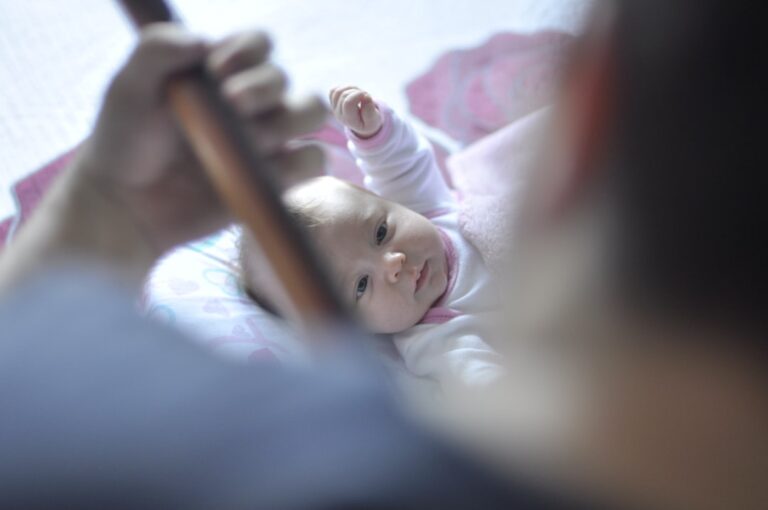Raising a preschooler is an adventure filled with laughter, hugs, high-energy days, and sometimes… sharp elbows or raised voices. If you’ve ever been surprised by your child hitting, pushing, or even biting at preschool, you’re not alone. Many parents face the unsettling challenge of early childhood aggression. This behavior, while common for children aged 3-5, is distressing for both parents and kids. If you’re searching for practical, compassionate parenting strategies to prevent preschooler aggression before it spirals, you’re in the right place.
Understanding Preschooler Aggression: Why Does It Happen?
Aggression in young children is a symptom, not a diagnosis. Preschoolers are still developing emotional regulation, language, and empathy. Let’s look at what’s happening under the surface:
- Emotional Overload: Strong feelings like frustration, anger, or disappointment can overwhelm a young child who hasn’t yet learned self-control.
- Limited Language Skills: When words fail, physical reactions often rush to fill the gap.
- Developing Impulse Control: The ability to stop and think before acting is just emerging at this age.
- Environmental Factors: Changes at home, transitions, or overexposure to aggressive behaviors (in media or at daycare) can play a role.
Understanding these root causes can help parents move from frustration to empathy—and target solutions that work with your child’s development, not against it.
Common Types of Aggressive Behaviors in Preschoolers
Aggression doesn’t look the same in every child. Here are some typical behaviors seen in preschool-aged kids:
- Hitting, slapping, or punching peers or adults
- Pushing or shoving
- Kicking or biting
- Throwing toys or objects in anger
- Screaming or using angry words
- Destroying property (like tearing books or breaking items)
These often occur during transitions, group play, or conflicts over sharing and turn-taking.
Is Preschool Aggression Normal? When to Worry
Spotting occasional aggressive outbursts is normal in preschoolers. However, persistent, severe, or escalating aggression may signal the need for extra support. Here’s when to seek professional advice:
- The aggression happens daily and disrupts learning or friendships
- Injuries occur as a result of the aggression
- Your child seems unusually angry, withdrawn, or distressed
- The behavior doesn’t improve with consistent guidance
For most children, positive parenting and early intervention lead to significant improvements.
Why Prevention Matters: The Lasting Impact of Early Aggression
Repeated aggression in the preschool years can lead to social rejection, discipline problems in school, and difficulties forming friendships. Children who learn appropriate ways to express big feelings before kindergarten are on a steadier path socially, emotionally, and academically. Early prevention is much more effective—and less stressful—than waiting until negative patterns are deeply ingrained.
12 Practical Ways Parents Can Prevent Aggression in Preschoolers
1. Master Emotional Coaching
Label your child’s feelings clearly and calmly. “I see you’re mad because your block tower fell. That’s frustrating.” When children feel understood, their distress often eases—and so does their urge to lash out.
2. Model Calm Problem-Solving
Children learn more from your responses than your words. Show them how to be calm when things go wrong: “Let’s take a deep breath together and figure out how to fix it.” Using coping skills out loud teaches them what to do next time.
3. Set Consistent, Clear Boundaries
Explain simply, and repeat often: “We do not hit.” Reinforce with calm redirection, quick removal from the scene, or appropriate consequences—but avoid shaming or yelling, which can inflame aggressive urges.
4. Teach Alternative Ways to Express Anger
Offer scripts or actions: “You can say, ‘I’m mad!’ or stomp your feet here, but gentle hands with people.” Provide a pillow to punch or an “angry dance” spot for safe release of tension.
5. Encourage Empathy Daily
Ask your child, “How do you think your friend felt when you grabbed the toy?” Practice reading faces in books or on TV and guessing feelings together.
6. Practice Turn-Taking and Sharing
Use games to teach waiting, sharing, and fairness. Short, structured turns with favorite toys can reduce conflict during playdates or group activities.
7. Limit Media Exposure and Discuss Content
Monitor what your preschooler watches or plays. Even some “kids” shows or games display aggression. Talk about what you see together—”That wasn’t kind. What could they have done instead?”
8. Prioritize a Predictable Routine
Preschoolers thrive on structure. Predictable mealtimes, naps, and regular family rituals help kids feel secure and less likely to act out.
9. Be Attuned to Triggers and Warning Signs
Does your child get aggressive when tired, hungry, rushed, or in loud places? Prevent meltdown moments with snacks, rest, or a gentler schedule where possible.
10. Offer Positive Reinforcement for Gentle Choices
Notice the good moments: “You used words instead of hitting. I’m proud of you!” Praise, hugs, or a small reward chart can reinforce self-control.
11. Foster Friendships and Social Skills
Arrange short, supervised playdates. Gradually extend play as your child demonstrates gentle interactions. Use snack time or cleanup as moments to practice teamwork.
12. Collaborate with Teachers and Caregivers
Stay in close contact with daycare or preschool providers. Share your home strategies and ask about what works at school. Consistency across settings strengthens skills.
What to Do When Aggression Happens: A Step-by-Step Parent Response
- Stay calm: Take a breath. Your composure sets the tone.
- Stop the behavior immediately: Gently but firmly separate your child from the situation if needed.
- Speak simply and clearly: “Hitting is not okay. People get hurt.” Avoid lectures or raising your voice.
- Help your child repair: Encourage them to check on the other child, offer a gentle touch, or say sorry if ready. This builds empathy, not just compliance.
- Later, talk about feelings and better choices: When everyone is calm, review what happened, how everyone felt, and brainstorm alternatives. Practice role-playing if helpful.
Preventing Aggression: Building a Home Culture of Respect
A family environment that values kindness, listening, and problem-solving provides the perfect training ground for self-control. Try these long-term strategies:
- Have daily “kindness check-ins” at meals or bedtime
- Use family meetings to resolve disagreements together
- Read books about feelings, friendship, and making amends
- Show respect for your child’s emotions, even the difficult ones
- Involve your child in coming up with “house rules” about hands, words, and actions
Frequently Asked Questions About Preschool Aggression
Is it OK if my child hits once in a while?
Occasional aggression is a normal part of early childhood. It shows that a child is still learning impulse control and emotional regulation. With gentle, consistent responses, most children develop better self-control by age 5 or 6.
How can I tell if media is making my child more aggressive?
If you notice increased aggression after watching certain shows, or if your child mimics aggressive behavior seen on screens, reduce exposure and discuss the difference between pretend and real-life behavior. Choose age-appropriate, prosocial content instead.
What if I lose my cool when my child is aggressive?
It happens to everyone. Take a moment to apologize and explain you were upset but it’s not okay to yell. Modeling repair after a mistake teaches your child powerful lessons in self-regulation.
Is my child headed for lasting problems if they are aggressive at 3 or 4?
Not necessarily! Early childhood is a learning time for social and emotional skills. Most children outgrow aggression with positive guidance. If problems persist or worsen into elementary years, check in with your pediatrician or a child psychologist.
How to Work With Your Child’s Preschool or Care Team
Open communication with your child’s teachers makes a huge difference. Share your home strategies and listen to their observations. Ask if your child struggles most during transitions, group activities, or free play. The goal is to create a united support team so your child feels safe and guided both at home and away.
Some preschools use evidence-based approaches like conscious discipline or positive behavior support. Ask about these methods and how you can reinforce them at home for extra consistency.
Books and Resources to Support Parents and Kids
Here are a few trusted titles and resources for further guidance:
- Books for Parents:
- No-Drama Discipline by Daniel J. Siegel & Tina Payne Bryson
- The Whole-Brain Child by Daniel J. Siegel & Tina Payne Bryson
- How to Talk So Little Kids Will Listen by Joanna Faber & Julie King
- Books for Kids:
- Hands Are Not for Hitting by Martine Agassi
- Calm-Down Time by Elizabeth Verdick
- Llama Llama Mad at Mama by Anna Dewdney
- Web Resources:
- Zero to Three: Parenting tips on child development
- NAEYC: Early childhood resources for families
Conclusion: Empathy and Consistency Are Your Greatest Tools
Preventing preschooler aggression takes patience, experimentation, and above all, empathy. Every child is unique, but consistent boundaries, emotional coaching, and positive reinforcement will help guide them toward gentler choices. Remember: aggressive outbursts don’t make you or your child “bad”—they’re simply signals that new skills are needed. With compassion and teamwork, you’re setting the stage for lasting self-control and peaceful friendships.
The journey isn’t always easy, but your calm presence and steady guidance are exactly what your child needs as they learn to navigate big feelings and act with kindness. And that’s one of the best gifts you can give as a parent.




